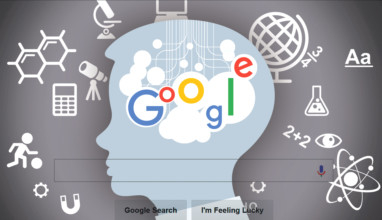
Does anyone know anything any more? The ease with which one can look up facts on a phone at any time is one of the wonders of the modern age. But are we becoming too reliant on it? A new study indicates, at least, that there might be a snowball effect to such reliance. The more we depend on Google for information recall, it suggests, the more we will do so in the future.
In a paper for the journal Memory, psychologists Benjamin Storm, Sean Stone, and Aaron Benjamin describe how they first asked people a set of difficult trivia questions. One group was told to use Google to answer them; the other group attempted to answer them from memory. Next, all the subjects were given a set of easier trivial questions, and offered the choice of using Google or not. It turned out that the ones who had previously used Google were more likely to choose to use it again this time — even if it was made significantly more inconvenient to do so. Thus, it seems, “relying on the internet to access information makes one more likely to rely on the internet to access other information”.
It would be unreasonable to extrapolate from these results the conclusion that, over time, no one will bother remembering anything at all. But such evidence may still come as grist to the mill of those who have long been asking “Is Google making us stupid?”
The answer, of course, depends among other things on what “stupid” means. If we all come to increase our “cognitive offloading” onto the internet, that may simply portend a cultural shift in the ways in which we value mental abilities. Since recall of facts is now so easy and quick via the internet, we may just become less impressed by factual knowledge, and more impressed by understanding and creativity.
The problem with this, as the researchers themselves note, is that the ability to draw creative connections between facts may depend on having internalised them already as knowledge, so that they are instantly available to the reasoning mind. Until we have direct brain connections to the internet, it is still far more laborious to look everything up about a topic one wants to think about. Plus, to look something up, one needs to know already what it is one wants to know.
Those who cleave to what is known as the “extended cognition” or “extended mind” argument, on the other hand, hold that a lot of our mental processes already happen outside the brain anyway: there is a view that smartphones, as well as notebooks, are literally parts of our minds when we are using them to think. We are all cyborgs already, and that is the natural progression of things. Why worry?
It may help put things in perspective to recall that an argument of this sort was already being conducted at the very birth of western culture. In Plato’s Phaedrus, Socrates tells the story of the ancient Egyptian deity Theuth, who invented the arts of mathematics, astronomy, and writing. Theuth went to the Egyptian king, Thamus, to show him his inventions and explain why they were useful. He was particularly proud of writing: “This invention, O king, will make the Egyptians wiser and will improve their memories; for it is an elixir of memory and wisdom that I have discovered.”
But the king thought the opposite. Writing, he argued, would “produce forgetfulness in the minds of those who learn to use it, because they will not practice their memory... Their trust in writing, produced by external characters which are no part of themselves, will discourage the use of their own memory within them. You have invented an elixir not of memory, but of reminding.” And this will, he fears, result on those who rely on writing never being “wise”.
For “writing” read “Google” and you have much of the burden of current worries about how use of the internet may be degrading our minds. Writing itself is just as much an external prosthetic technology (“characters which are no part of themselves,” as the Egyptian king complains) as the internet is. Writing is also a tool of extended cognition. The difference is that we have had thousands of years to get used to it. The truth about the question of whether our reliance on modern electronic prostheses is better or worse for us is that it’s simply too early to tell.
— Guardian News & Media Ltd
Steven Poole is the author of Rethink, You Aren’t What You Eat, Unspeak, and Trigger Happy.










